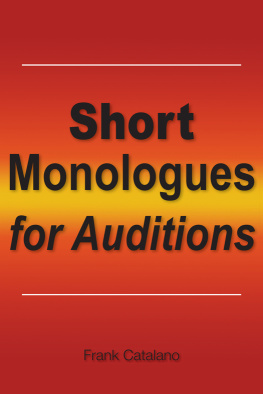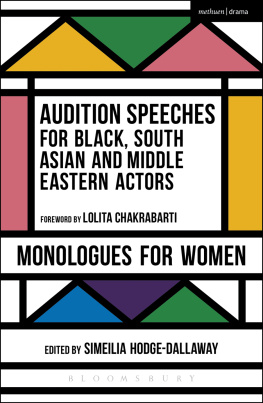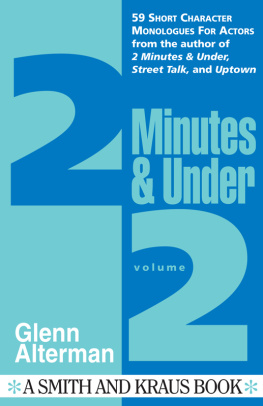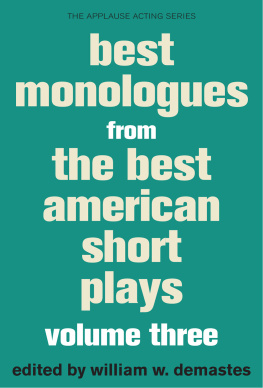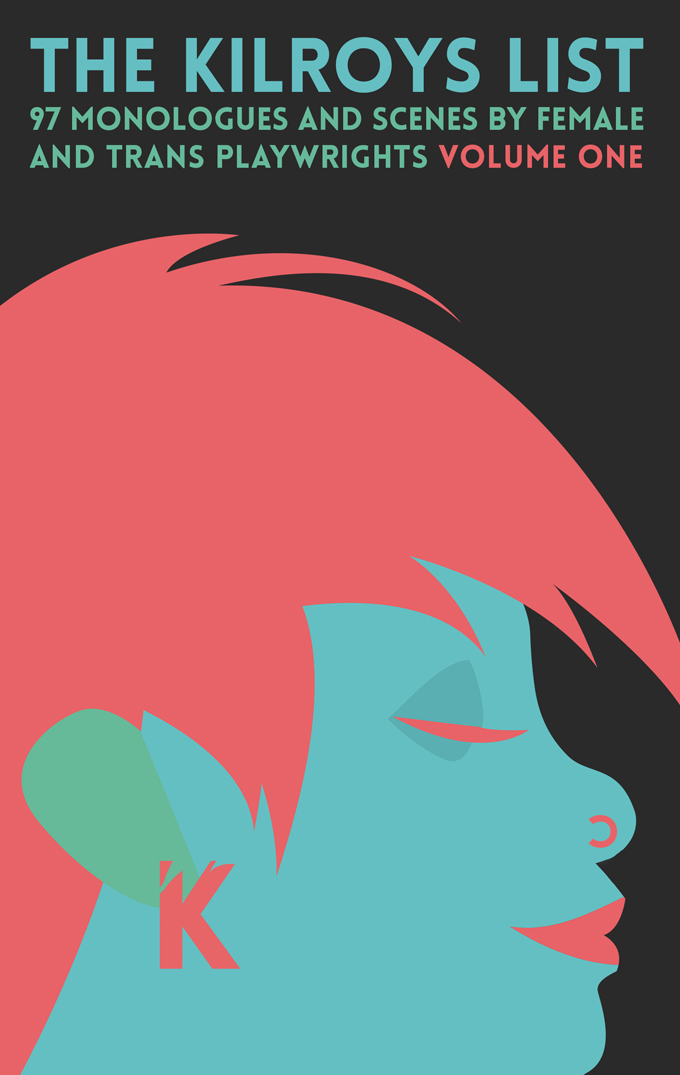THE KILROYS LIST 2014/2015
Zakiyyah Alexander, Christina Anderson,
Jaclyn Backhaus, Tanya Barfield, Clare Barron,
Kate Bender, Hilary Bettis, Jocelyn Bioh, Rachel Bonds,
Jami Brandli, Bekah Brunstetter, Sarah Burgess,
Sheila Callaghan, Eugenie Chan, Sam Chanse,
Mia Chung, Eliza Clark, Alexandra Collier,
Fernanda Coppel, Erin Courtney,
Frances Ya-Chu Cowhig, Sarah DeLappe,
Lydia R. Diamond, Jackie Sibblies Drury, Laura Eason,
Larissa FastHorse, Halley Feiffer, Lindsey Ferrentino,
Leigh Fondakowski, Madeleine George, Sarah Gubbins,
Dipika Guha, Karen Hartman, Amina Henry,
Laura Jacqmin, Hansol Jung, MJ Kaufman,
Nambi E. Kelley, Georgette Kelly, Boo Killebrew,
Basil Kreimendahl, Kimber Lee, Martyna Majok,
Mona Mansour, Meg Miroshnik, Rehana Lew Mirza,
Anna Moench, Dominique Morisseau,
Julie Marie Myatt, Janine Nabers, Mary Kathryn Nagle,
Lynn Nottage, Jiehae Park, Lisa Ramirez,
Theresa Rebeck, Gabrielle Reisman, Amelia Roper,
Melissa Ross, Sharyn Rothstein, Tanya Saracho,
Laura Schellhardt, Heidi Schreck, Jenny Schwartz,
Jen Silverman, Charise Castro Smith, Ruby Rae Spiegel,
Susan Soon He Stanton, Kate Tarker, Stephanie Timm,
Mfoniso Udofia, Paula Vogel, Kathryn Walat,
Timberlake Wertenbaker, Calamity West,
Leah Nanako Winkler, Bess Wohl, Lauren Yee,
Stefanie Zadravec, and Anna Ziegler.


The Kilroys List is copyright 2017 by The Kilroys
Foreword is copyright 2017 by Paula Vogel
The Kilroys List is published by Theatre Communications Group, Inc.,
520 Eighth Avenue, 24th Floor, New York, NY 10018-4156
All rights reserved. Except for brief passages quoted in newspaper, magazine, radio or television reviews, no part of this book may be reproduced in any form or by any means, electronic or mechanical, including photocopying or recording, or by an information storage and retrieval system, without permission in writing from the publisher.
Professionals and amateurs are hereby warned that this material, being fully protected under the Copyright Laws of the United States of America and all other countries of the Berne and Universal Copyright Conventions, is subject to a royalty. All rights, including but not limited to, professional, amateur, recording, motion picture, recitation, lecturing, public reading, radio and television broadcasting, and the rights of translation into foreign languages are expressly reserved. Particular emphasis is placed on the question of readings and all uses of this book by educational institutions, permission for which must be secured from the publisher.
The individual playwrights retain all copyright for their work contained in this volume. Contact information for each playwright appears within the biographies at the end of the book.
The publication of The Kilroys List, through TCGs Book Program, is made possible in part by the New York State Council on the Arts with the support of Governor Andrew Cuomo and the New York State Legislature.
TCG books are exclusively distributed to the book trade by Consortium Book Sales and Distribution.
ISBN 978-1-55936-856-8 (ebook)
A catalog record for this book is available from the Library of Congress.
Book design and composition by Lisa Govan
Cover art by Alex Reeves
First Edition, June 2017
CONTENTS
Table of Contents
Guide
S ometimes the best allies playwrights can have are critics.
To prove this point, Id like to bring up the Washington Posts Peter Marks, whose initiative led to The Summit, a community discussion hosted by Arena Stage, with a panel comprised of artistic directors of Washington, DC, theaters.
I wasnt there. But thanks to Twitter, I was a fly on the wall. Peter Marks asked the artistic directors why there were so few women playwrights produced in DC. One of them responded: Because they are not in the pipeline.
According to my Twitter responses, there was consternation, indignation, and just plain anger in the audience.
As I read my Twitter account, I must confess my response: resignation.
When I first became a playwright in 1974, women comprised sixteen percent of all playwrights produced in America. In 2014, we increased up to seventeen percent. And, after forty years of speaking out at conferences, summits, festivals, and panels (and getting a reputation as an angry dyke), I turned my advocacy to running playwriting programs. For forty years I searched for feminist writers, writers who stretched the theatrical and gender envelope, playwrights who would create fully dimensional, complicated character recipes for women. Playwrights who would create female Willy Lomans and Hamlets, or bring to the stage complex Linda Lomans and Ophelias, which their creators had never envisioned.
One writer at a time, I hoped to mentor more daring, more collaborative, more inventive, and more confident writers who had chutzpah to self-produce. Every year during admissions, I sifted through piles of plays on my living room floor. It was sheer anguish to narrow down the playwrights whom I was dying to work withfrom two hundred to forty... and then finally to three. My living room floor was overflowing with plays that deserved cornucopias of pipelines.
Alas, my own program at Brown (and Brown raised complete fundingand shouldnt all art programs be free?) reproduced an economy of scarcity that mirrors the economy of scarcity of the major institutional theaters. I realized there was no way I could provide such a cornucopia, running a program single-handedly. Neither could my colleagues in the field who also put their own writing on the back burners to mentor: Naomi Iizuka, Marsha Norman, Tina Howe, Connie Congdon, Rob Handel, Steven Dietz, Sarah Ruhl, Laura Schellhardt, Christina Anderson, Quiara Hudes, Julie Jensen, Christopher Durang, Oliver Mayer, Velina Hasu Houston, David Henry Hwang, Lynn Nottage, Erik Ehn, Kathleen Tolan, Chuck Mee, Mac Wellman, and Deborah Stein, just to name a few. (Remember the old adage: Those who can, do; those who cant, teach? Thats another myth worth discarding, alongside the one about the lack of women and writers of color to put in the pipeline...)
Dear readers: Let me tell you, however delayed the gratification might be, during the past few years my hope has become renewed as I witness the generations of writers who are more inventive, more daring, and more collaborative than ever. We owe thanks to 13P, a revolutionary group of playwrights (talk about feminist!), who collaboratively produced each other, one play a year, and then shuttered their not-for-profit doors after the thirteenth production. They gave us a role model to follow: Do not wait for permission from the institutional theaters to be produced.
And thanks to the Guerilla Girls, whose subversive tactics have been calling attentionattention must be paid to them!I fondly remember reading their stickers in the bathroom stalls of institutional theaters: In this theater, the taking of photography and the production of plays by women are strictly forbidden.
And then there were the Lillies: Julie Jordan, Marsha Norman, and Theresa Rebeck, and countless others who were determined to celebrate women in theater, fundraising to provide fellowships, space, and time, through new initiatives. (If you happen to be in New York during one of their cabarets or award celebrations, please go! Their generosity and joy is infectious. Women and men gather together to put the spotlight on womens achievements that often go unheralded by the Tony Awards or the press.)


